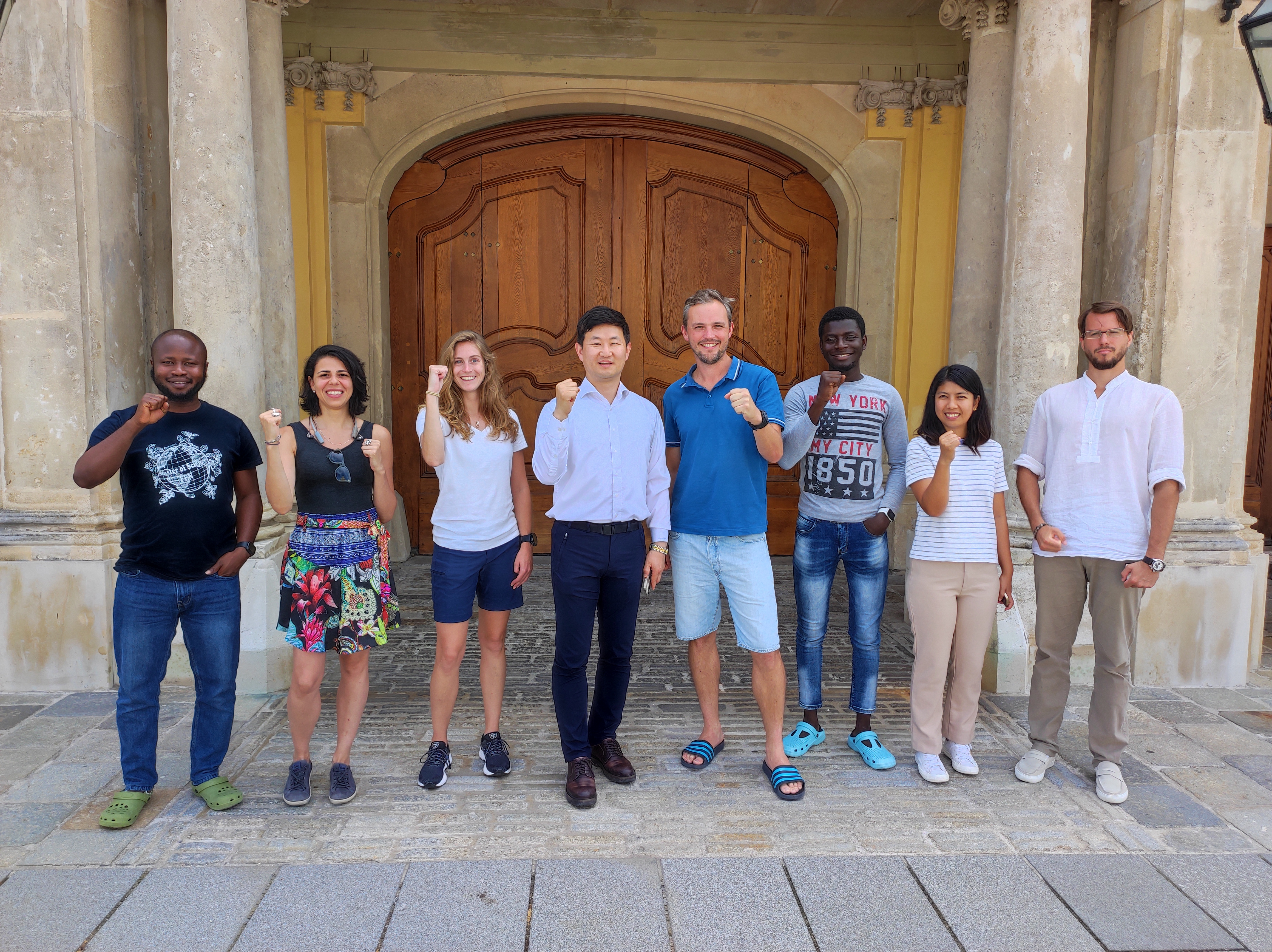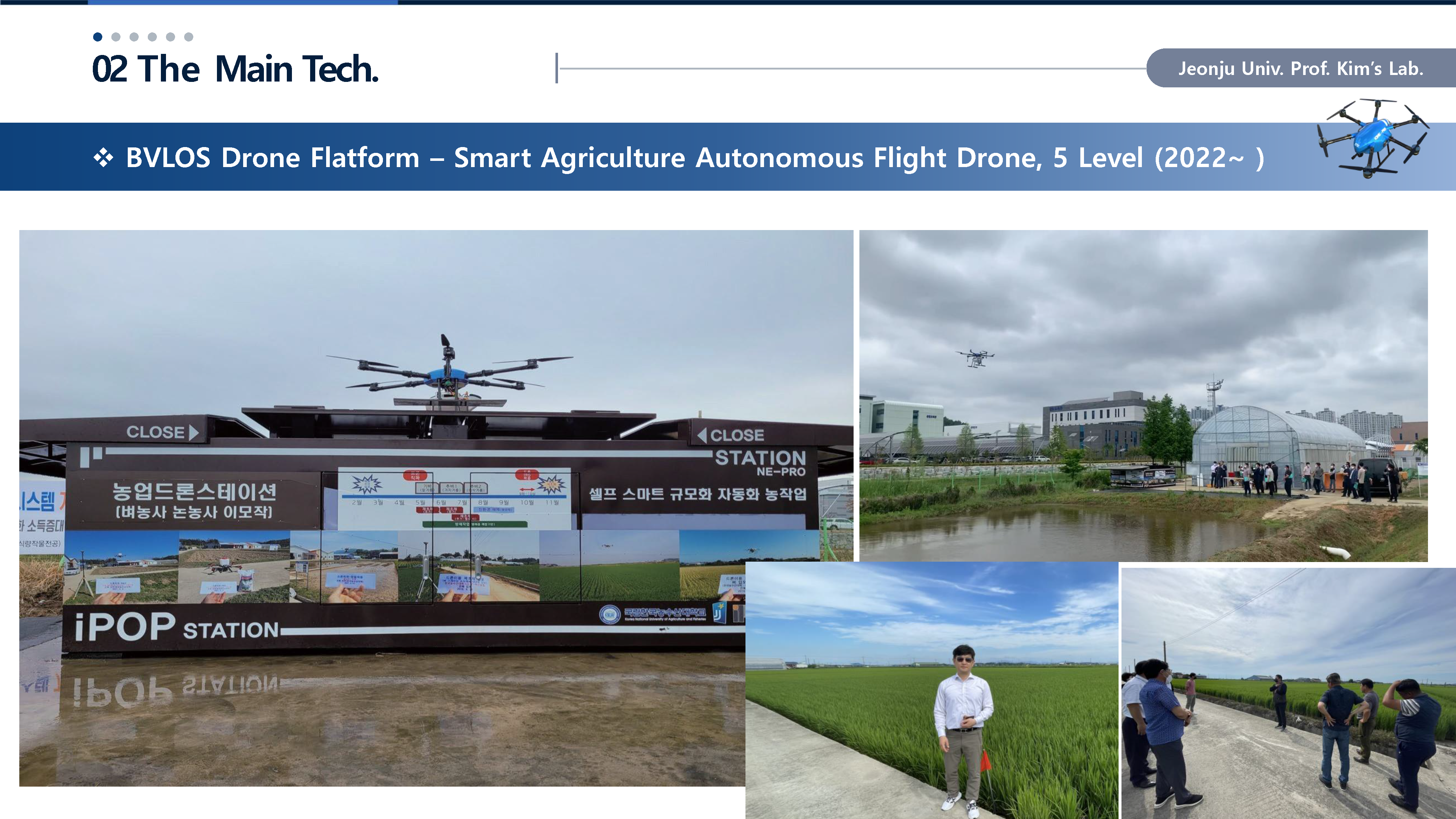
Jeonju University's Professor Donghyun Kim visited IIASA on July 24, 2023, to present his cutting-edge research on drone technology for smart agriculture and fire suppression and monitoring. The visit aimed to explore collaboration possibilities with the FLAM-AFE team.
During his visit, Professor Kim – CEO of iPoP co. Ltd. – shared his recent achievements in technological innovations and ongoing research, including research in smart agriculture technology. This involves the use of autonomous drones programmed to, for example, fertilize, seed, and manage rice fields, leading to improvements in both quantity and quality of agricultural harvests.
The presentation also highlighted the adoption of drone technology in Korea for efficient firefighting techniques and monitoring forest fires. Dr. Kim demonstrated how his company's drones have significantly enhanced forest fire detection and suppression, emphasizing their efficiency in detecting and combatting fires. This innovation has the potential to revolutionize the agricultural and forestry sectors, making it more sustainable and efficient in the view of climate change and financial risks.
 © Andrey Krasovskiy
© Andrey Krasovskiy
FLAM team with Prof. Kim
Following the presentation, the FLAM team expressed keen interest in exploring this aspect further. Dr. Kim and the FLAM team have identified two potential areas of collaboration. Firstly, the plan to collaborate on research papers exploring the optimization of drone stations for fire monitoring and surveillance, as well as better implementation of high-tech suppression technologies into modeling framework. Additionally, the teams plan to compare conventional fire suppression methods with the use of drone technology to provide valuable insights into the effectiveness of the technology. Secondly, they aim to start a project next year on forest fire forecasting based on the FLAM model, coupled with the optimal location of drone stations. This potential project will enable more accurate predictions of forest fires, leading to proactive and targeted fire prevention strategies. A key goal of the project would be to highlight the effectiveness of new technologies in combatting wildfires, the occurrence of which is likely to increase as a result of climate change and which will require ongoing innovation to manage.
The teams will hold a follow-up meeting to further conceptualize the project, gather more information, and solidify this collaboration.
News

17 October 2023
New Team Members in Focus: Advancing Research Works in Agriculture, Forestry and Ecosystem Services Group

26 June 2023
